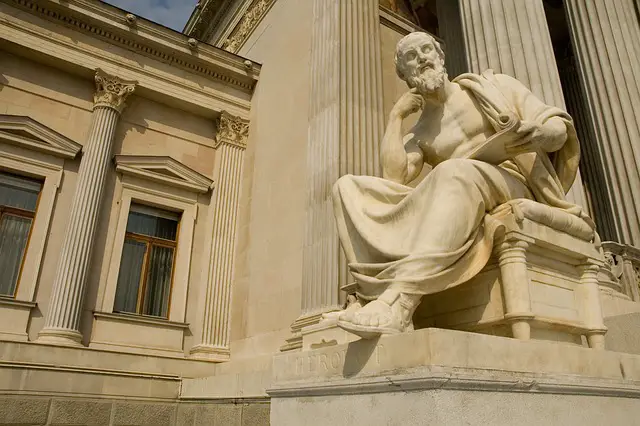Ronald Dworkin (1931-2013) was a highly influential legal philosopher and scholar whose work has profoundly impacted the field of jurisprudence. Known for his contributions to legal theory, constitutional interpretation, and moral philosophy, Dworkin’s ideas continue to shape contemporary discussions about the nature of law and justice. This guide provides an overview of Dworkin’s key theories, contributions, and the lasting impact of his work.

Key Theories and Contributions

1. Law as Integrity
One of Dworkin’s central contributions is his theory of “law as integrity,” which he elaborated in his seminal works, “Taking Rights Seriously” (1977) and “Law’s Empire” (1986). According to this theory:
- Principles Over Rules: Dworkin argues that law should be understood as a system of principles rather than merely a set of rules. While legal rules provide concrete guidance, principles are moral standards that justify the rules and help interpret them in light of justice and fairness.
- The Role of Judges: In interpreting the law, judges should strive to present the law as a coherent and morally acceptable system. This involves interpreting legal texts in a way that aligns with the best moral reading of the law, thereby ensuring that the law reflects a sense of integrity and consistency.
- Critique of Legal Positivism: Dworkin challenges legal positivism, which asserts that law is a set of rules created by legitimate authority without regard to moral considerations. He argues that legal interpretation must account for moral principles and values, rejecting the positivist view that law and morality are separate domains.
2. Rights as Trumps

In “Taking Rights Seriously,” Dworkin introduces the concept of “rights as trumps,” which posits that individual rights should take precedence over utilitarian considerations and other social goods. According to Dworkin:
- Individual Rights: Rights are not merely procedural or secondary considerations but fundamental aspects of justice that protect individuals from being sacrificed for the greater good. This view emphasizes the importance of respecting individual rights even when doing so might conflict with broader societal benefits.
- Moral Foundation: The idea that rights act as “trumps” highlights the moral foundation of legal rights, asserting that respecting these rights is crucial for maintaining a just legal system.
3. Interpretivism

Dworkin’s interpretivism is a key aspect of his legal theory. He believes that legal interpretation involves:
- Constructive Interpretation: This method requires interpreting legal texts and principles in a way that constructs the best moral and political justification for the legal system. It seeks to fit the law within a coherent framework that reflects fundamental values and principles.
- Role of the Judge: Judges, according to Dworkin, play a crucial role in shaping and refining the legal system through interpretive acts. They must ensure that their interpretations align with moral principles and contribute to the integrity of the law.
4. Critique of Legal Realism

Dworkin also engages with legal realism, which emphasizes that law is not a strict set of rules but is shaped by the subjective judgments of judges. He critiques the realist view by asserting that:
- Law and Morality: While legal realism acknowledges the role of judicial discretion, Dworkin argues that the law is not entirely subjective. Instead, it is grounded in moral principles that guide judicial decisions and provide a normative framework for legal reasoning.
- Consistency and Coherence: Dworkin emphasizes the importance of maintaining consistency and coherence in legal interpretation, countering the realist perspective that judges’ personal views and biases can undermine the law’s integrity.
Major Works

- “Taking Rights Seriously” (1977): This book introduces many of Dworkin’s core ideas, including the concept of rights as trumps and his critique of utilitarianism in legal theory.
- “Law’s Empire” (1986): In this work, Dworkin further develops his theory of law as integrity and offers a detailed account of interpretivism and the role of judges.
- “Justice for Hedgehogs” (2011): This later work explores Dworkin’s views on moral and political philosophy, focusing on the unity of value and the nature of justice.
Legacy and Impact

Ronald Dworkin’s contributions have left a lasting impact on legal theory and constitutional interpretation. His ideas have influenced debates about the role of morality in law, the nature of legal rights, and the practice of judicial interpretation. His emphasis on the moral dimensions of law challenges legal positivism and offers a compelling vision of how law should reflect principles of justice and integrity.
Dworkin’s work continues to be studied and debated by legal scholars, philosophers, and practitioners, and his theories remain central to discussions about the nature of law, rights, and justice.
Internal Links for Further Reading

- Understanding Dworkin’s Theory of Law as Integrity
- The Concept of Rights as Trumps: Dworkin’s Perspective
- An Overview of Dworkin’s Critique of Legal Positivism
- Exploring Dworkin’s Interpretivism in Legal Theory
- The Legacy of Ronald Dworkin in Modern Jurisprudence
Conclusion

Ronald Dworkin’s legal philosophy has significantly shaped contemporary legal thought by integrating moral principles into the understanding of law. His theories on law as integrity, the role of rights, and interpretivism provide valuable insights into the relationship between law, morality, and justice. As legal scholars and practitioners continue to engage with his ideas, Dworkin’s work remains a cornerstone of legal philosophy and a source of inspiration for those seeking to understand and apply the principles of justice in the legal system.
